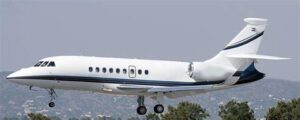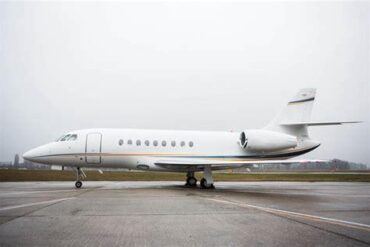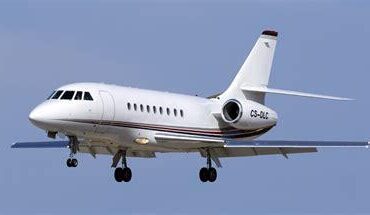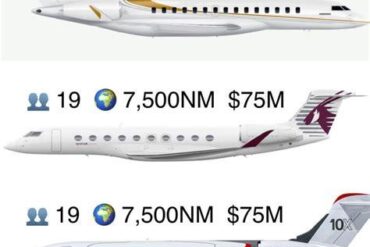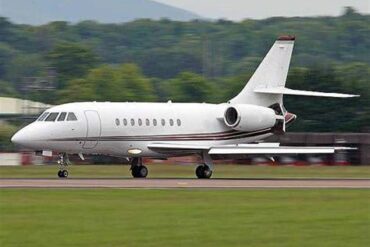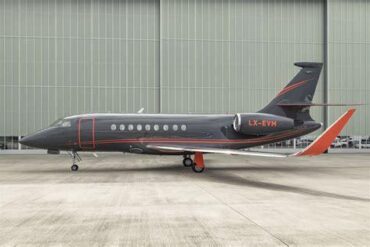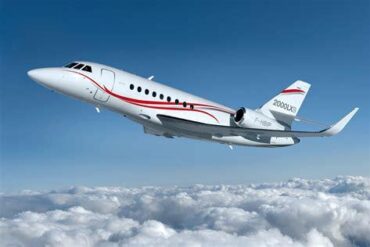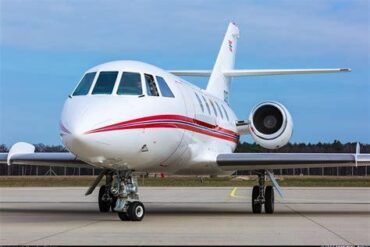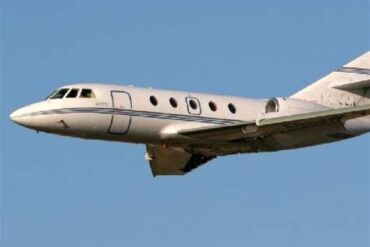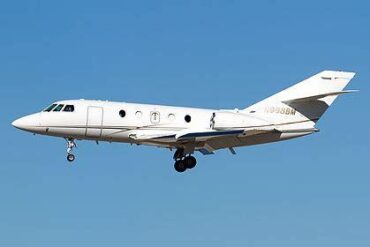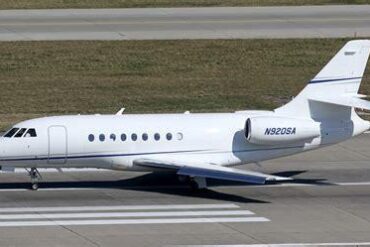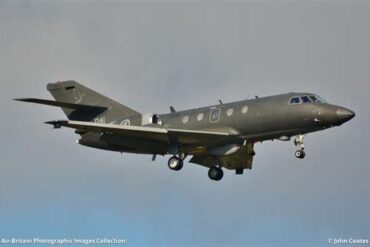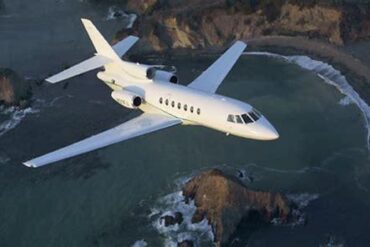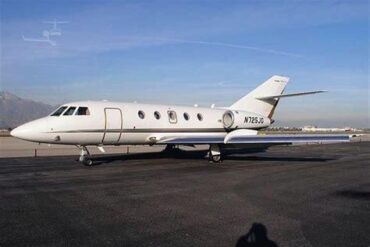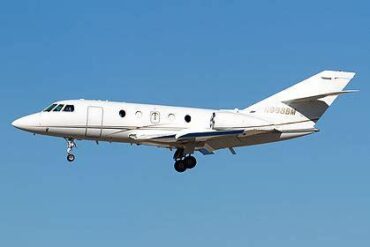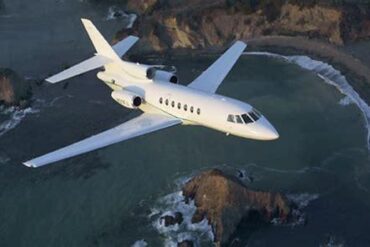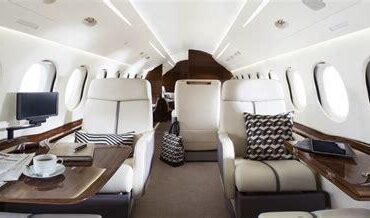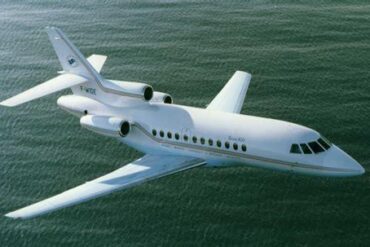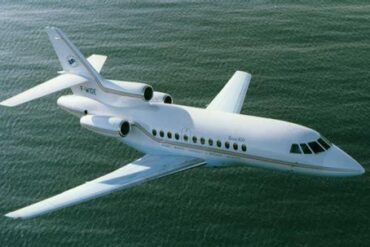The Dassault Falcon 2000EX is a notable entry in the world of business aviation, renowned for its remarkable performance, luxurious interior, and advanced technology. In this comprehensive analysis, we delve into the price of acquiring a Falcon 2000EX as well as the operating costs associated with owning and operating this exceptional aircraft.
Overview of the Dassault Falcon 2000EX
The Falcon 2000EX is part of the esteemed Falcon series manufactured by Dassault Aviation, a company known for its commitment to innovation and excellence in the aerospace sector. Launched in the early 2000s, this twin-engine business jet has garnered a reputation for its versatility, range, and efficiency, making it a popular choice among corporate flight departments and private owners alike.
Key Specifications
Before diving into the costs, it’s essential to understand what the Falcon 2000EX offers:
-
Passenger Capacity: Up to 10 passengers in a standard configuration.
-
Maximum Range: Approximately 3,800 nautical miles (7,037 kilometers).
-
Cruising Speed: Around 482 knots (890 km/h).
-
Cabin Height: 6 feet (1.83 meters).
-
Cabin Width: 7.7 feet (2.34 meters).
These specifications highlight the Falcon 2000EX’s ability to provide a comfortable and efficient flying experience, catering to the needs of both business and leisure travelers.
Acquisition Cost of the Falcon 2000EX
When considering the purchase of a Dassault Falcon 2000EX, potential buyers must be aware of the acquisition costs involved. The price of a new Falcon 2000EX can vary significantly based on factors such as customization options, market conditions, and the specific configuration chosen by the buyer.
New vs. Used Pricing
The market for used Falcon 2000EX jets is robust, with prices typically ranging from $8 million to $12 million. On the other hand, a brand-new Falcon 2000EX, if available, could cost upwards of $30 million, depending on the level of customization and additional features requested. Factors influencing the price include:
-
Interior Customization: The choice of materials, layout, and technology can greatly influence the final cost.
-
Avionics Upgrades: Advanced navigation and communication systems can add significant value.
-
Market Trends: Economic conditions and demand for pre-owned jets can also affect pricing.
Financing Options
Buyers often explore various financing options to facilitate the purchase. Common methods include:
-
Loans: Traditional bank loans or specialized aviation financing solutions.
-
Leasing: A viable alternative that allows access to the aircraft without full ownership.
-
Fractional Ownership: Sharing ownership and usage with other parties to reduce individual costs.
Operating Costs of the Falcon 2000EX
Once the initial purchase has been made, it’s crucial to understand the ongoing operating costs associated with the Falcon 2000EX. These expenses can be categorized into several key areas:
1. Fuel Costs
Fuel is one of the most significant recurring expenses for any business jet. The Falcon 2000EX consumes approximately 180 gallons per hour (GPH) of fuel at a cruising speed. Given current fuel prices, which can fluctuate based on location and market conditions, operators should budget around $1,200 to $1,500 per hour for fuel costs alone. This translates to an annual fuel expense of approximately $200,000 to $300,000 for typical usage.
2. Maintenance and Inspections
Regular maintenance is essential to ensure safety and reliability. The Falcon 2000EX requires routine inspections and periodic overhauls, which can accumulate considerable costs. Operators should anticipate spending about $100,000 to $150,000 annually on maintenance, including:
-
Scheduled Maintenance: Adhering to manufacturer guidelines for inspections and repairs.
-
Unscheduled Repairs: Addressing unexpected issues that may arise during operation.
-
Parts Replacement: Routine wear and tear on components like engines, avionics, and landing gear.
3. Crew Salaries
For those who operate the Falcon 2000EX commercially or for corporate use, crew salaries are a significant consideration. A typical flight crew consists of two pilots and potentially cabin crew, depending on passenger load. Annual salary expenses can range from $200,000 to $400,000, depending on the crew’s experience and the operational structure.
4. Insurance Costs
Insurance is a critical component of operating any aircraft. The cost of insuring a Falcon 2000EX typically ranges from $25,000 to $50,000 annually, depending on coverage levels, pilot qualifications, and operational history. Factors influencing insurance costs include:
-
Flight Hours: More hours can lead to higher premiums.
-
Pilot Experience: Experienced pilots with clean records may qualify for lower rates.
-
Aircraft Value: Higher-value aircraft generally incur greater insurance costs.
5. Hangar and Parking Fees
Storing the Falcon 2000EX when not in use is another significant expense. Hangar fees vary widely based on location and facility quality, typically ranging from $1,000 to $3,000 per month. Annual costs could thus amount to $12,000 to $36,000. Additionally, transient parking fees at airports should also be considered for travel.
6. Miscellaneous Operating Expenses
Other costs associated with operating the Falcon 2000EX include:
-
Landing Fees: Charges applied at airports based on weight and operations.
-
Ground Handling Fees: Costs for services provided during ground operations.
-
Catering: Depending on the level of service desired, catering costs can vary significantly.
-
Fuel Surcharges: Some operators may face additional charges based on fluctuating fuel prices.
Total Estimated Operating Costs
Considering all the aforementioned factors, the total annual operating costs for a Dassault Falcon 2000EX can range from $800,000 to over $1.5 million, depending on usage patterns, flight hours, and individual operational choices. This figure reflects a comprehensive understanding of the financial commitment required for ownership.
Conclusion
The Dassault Falcon 2000EX stands out as a premier choice for those seeking a combination of luxury, performance, and efficiency in business aviation. While the acquisition costs can be substantial, understanding the operating costs is crucial for prospective buyers. By budgeting appropriately for fuel, maintenance, crew salaries, insurance, hangar fees, and miscellaneous expenses, owners can make informed decisions that enhance their overall flying experience. Investing in a Falcon 2000EX not only represents a financial commitment but also opens the door to unparalleled travel experiences, ensuring comfort and productivity at every altitude.
